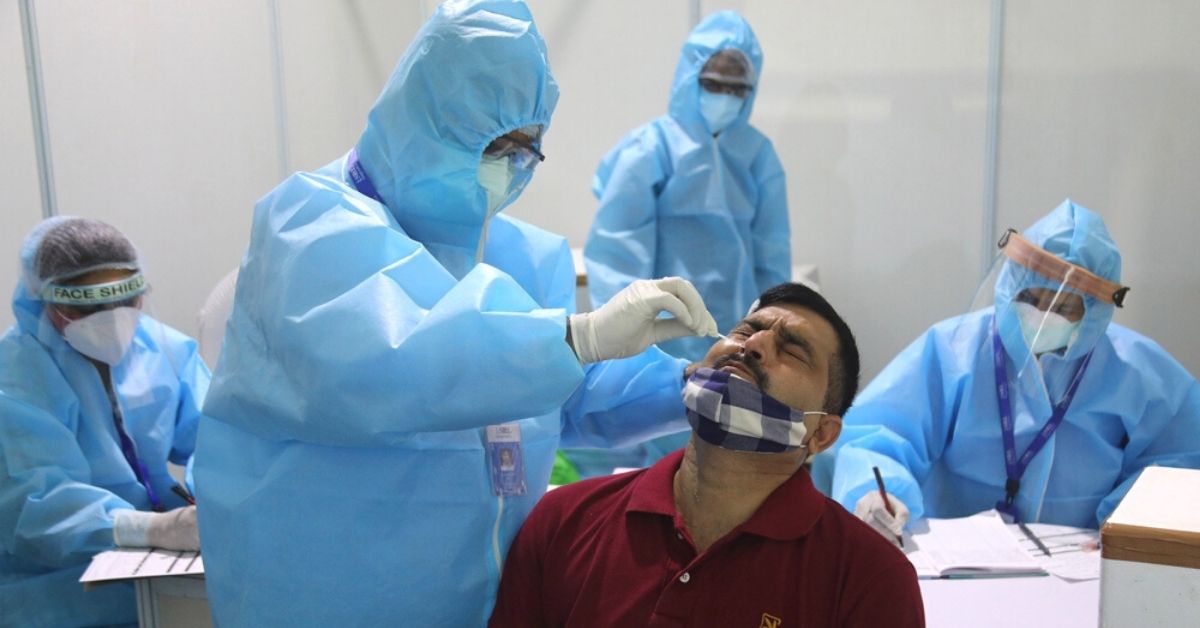India has lost 4.49 lakh individuals to COVID-19 and several others to post-COVID complications. The death toll continues to rise on a daily basis, despite vaccination drives being held across the country. But the light at the end of a very dark and long tunnel seems to be the experimental pill by Merck & Co being developed after several rounds of clinical trials.
About the trial:

Merck and partner Ridgeback Biotherapeutics conducted a late-stage trial of the treatment in non-hospitalised patients to see if it reduces the risk of hospitalisation or death. According to the press release, at the Interim Analysis, 7.3 per cent of patients who received Molnupiravir were hospitalised through day 29, compared with 14.1 per cent of placebo-treated patients who were hospitalised or died. All patients who participated in this trial had laboratory-confirmed mild-to-moderate COVID-19, with symptom onset within five days of study randomisation.
Merck expects to produce 10 million courses of treatment by the end of 2021, with more doses expected to be produced in 2022. The Phase 3 portion of the trial was conducted globally, including in more than 170 planned sites in countries including Argentina, Brazil, Canada, Chile, Colombia, Egypt, France, Germany, Guatemala, Israel, Italy, Japan, Mexico, Philippines, Poland, Russia, South Africa, Spain, Sweden, Taiwan, Ukraine, the United Kingdom and the United States.
What you need to know about the pill:
- This experimental pill is being hailed as a potential breakthrough in COVID-19 treatment after data showed it could halve the chances of dying or being hospitalised.
- If this pill gets the necessary authorisation, it would be the first oral antiviral medication for COVID-19.
- According to a news report by NDTV, molnupiravir reduced the risk of hospitalisation or death by 50 per cent in an interim analysis of a late-stage clinical trial.
- Since this is an experimental drug, there is not much data in the public domain.
- Another news report suggests that molnupiravir works by messing up the way the virus copies RNA, its genetic material, preventing viral replication. There is some concern it could be mutagenic, which means that it could cause mutations.
- Another concern is that it could lead to birth defects.
- Women of childbearing age in the trial also needed a negative pregnancy test to start taking the medicine.
- Daria Hazuda, a top Merck virologist at a press conference said, “I would say that in all of the models where we have looked, we have seen no evidence of the potential for mutagenicity for this agent. We’re very comfortable
that the drug will be safe if used as intended and at the concentrations where we have looked and in the concentrations which we are achieving in patients.” - The drug has so far been tested only in patients with mild-to-moderate COVID-19 symptoms.
- The Hindu report suggests that the treatment protocol is started within five days of testing positive and has at least one risk factor that increases their risk for severe disease. These include obesity, older age groups (>60 years), diabetes mellitus and heart disease.
- While it is being said that the cost of this treatment will be lesser than the existing monoclonal therapy, there is no official confirmation on the same.
- Merck has also agreed to license the drug to several India-based generic drugmakers, which would be able to supply the treatment to low and middle-income countries.
- Three Indian drug makers will seek approval from the US Food and Drug Administration (USFDA), following the completion of their own clinical trials next month, as per the Mint report.
- Merck has also reportedly tied up with eight Indian companies, including Cipla, Dr Reddy’s, Emcure, Sun and Torrent, to manufacture its drug in India.
(Edited by Yoshita Rao)
No comments:
Post a Comment